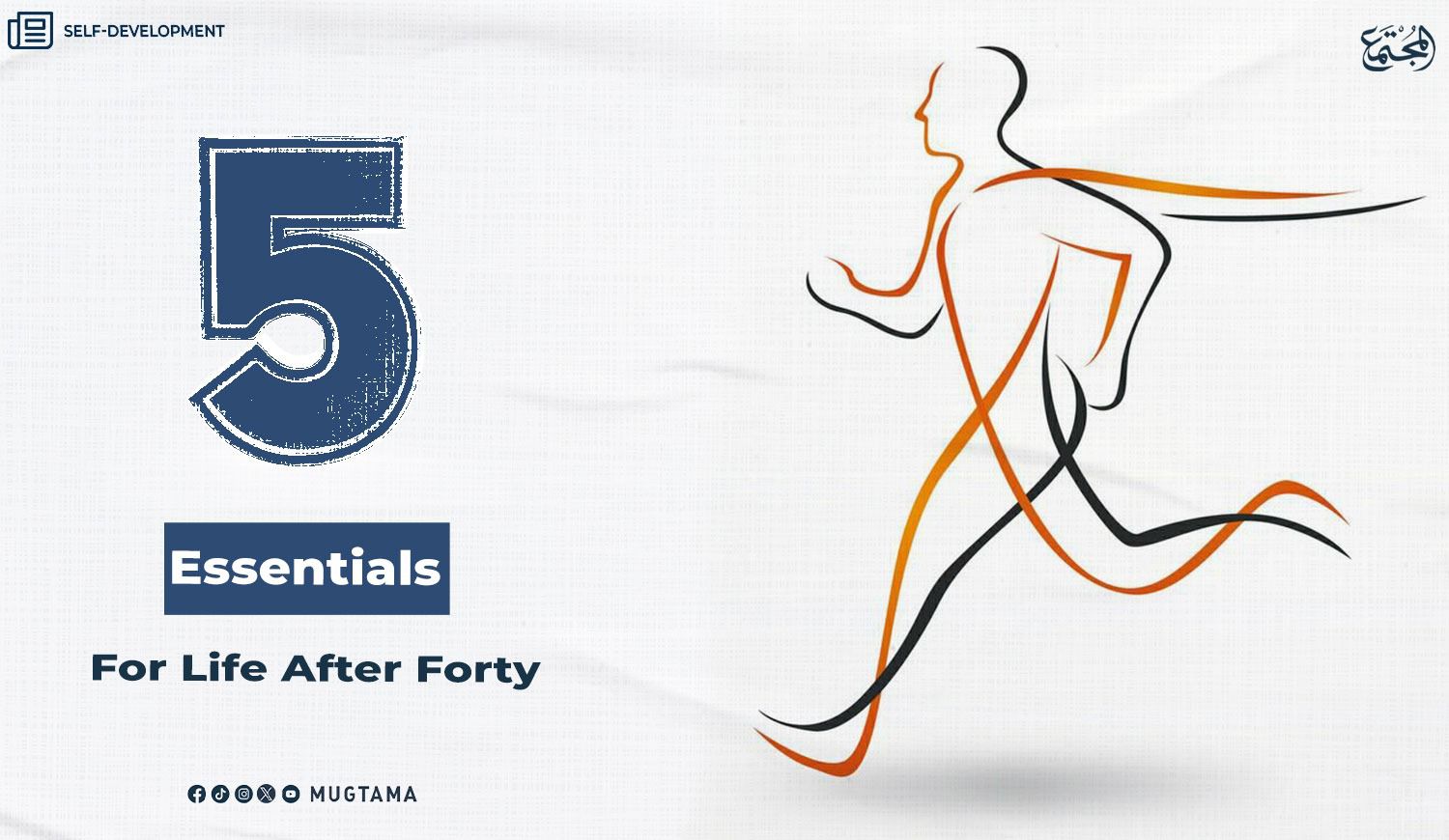5 Life Essentials for Muslims after Forty

Reaching the age of forty marks a
significant stage in a person’s life — a point of maturity, understanding, and
awareness. It is the only specific age mentioned by Allah Almighty in the Noble
Quran, where He says:
“We have commanded people to honor
their parents. Their mothers bore them in hardship and delivered them in
hardship. Their ˹period of˺ bearing
and weaning is thirty months. In time, when the child reaches their prime at
the age of forty, they pray, ‘My Lord!
Inspire me to ˹always˺ be
thankful for Your favors which You blessed me and my parents with, and to do
good deeds that please You. And instil righteousness in my offspring. I truly
repent to You, and I truly submit ˹to Your Will˺.’” (Al-Ahqaf 46:15)
The significance of this age is further
underscored by the fact that Allah sent His prophets with their missions after
they reached forty — it was at this age that revelation descended upon Prophet
Muhammad (peace be upon him) in the cave of Hira.
Ibn Kathir commented: “A man at forty
seldom changes from what he is; at forty, intellect reaches its completion,
understanding and forbearance are perfected, and reasoning becomes strong.”
When a person reaches this psychological
and spiritual milestone, there are several key aspects to consider — in faith,
in mind, and in health — to maintain balance and well-being.
1. Spiritually:
At this stage, one should draw closer to Allah, remain diligent in acts of
worship, purify the soul with all that is good and beneficial, and increase in
righteous deeds.
Al-Qurtubi said: “Allah Almighty
mentioned that when a person reaches forty, it is time for him to realize the
magnitude of Allah’s blessings upon him and his parents and to express
gratitude. Malik said: I met the scholars of our land who would pursue worldly
matters and mingle with people until they turned forty; then when they reached
that age, they would withdraw from the people.”
2. Physically and mentally:
This age signifies leaving behind the vigor and vitality of youth for a stage
with its own characteristics. The body may begin to lose energy and immunity,
becoming more vulnerable to illness — hence the need for rest and balance. As
the popular saying goes: “After forty, say: O Lord, grant me strength.”
It becomes essential to adopt a healthy lifestyle in eating, drinking,
sleeping, and working habits.
3. Health-wise:
Avoid smoking, intoxicants, and all
harmful substances — not only because they are prohibited, but also because of
their destructive effects on health. A person may abstain from certain foods,
though permissible, simply to protect his health. Prevention is better than
cure.
With age, fat accumulates, and the body
tends to become drier; thus, one must pay attention to diet, consume plenty of
vegetables and fluids, avoid fast food and soft drinks, and refrain from
staying up late. Studies have shown that adults who sleep less than seven hours
a night are at higher risk of heart disease, obesity, and diabetes.
4. Exercise:
Physical activity is vital at this stage, considering the health, bodily, and
hormonal changes that may occur — especially affecting brain and heart health.
Experts recommend walking at least half an hour daily, engaging in light
exercises for ten minutes, and incorporating swimming, cycling, or football.
Health specialists also emphasize strength training to boost metabolism during
early aging and reduce the risk of diseases such as cancer and cardiovascular
issues.
5. Emotional and mental well-being:
Avoid stress and anger, stay away from conflicts, overlook mistakes, and seek
inner peace through reflection and contemplation on the signs of Allah.
Cultivate a spiritual connection that serves as a lifeline amid life’s
pressures — a connection nourished by the remembrance of Allah, prayer in
congregation, regular recitation of the Quran, and adherence to the authentic
supplications from the Quran and Sunnah.
-------------------------------------------------------------
Read Also:










